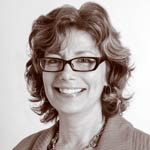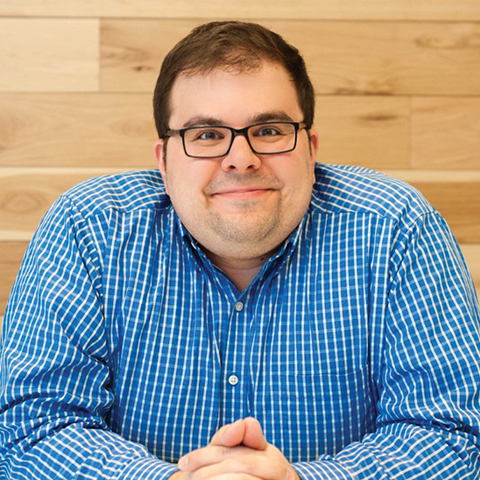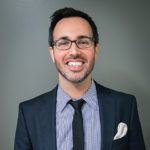The owner of the association-management company Administrative Management Services (AMS) has also blazed a trail for other international meeting professionals, for which he earned PCMAs Global Meetings Executive of the Year award, presented at IMEX in Frankfurt, Germany, this past May, by PCMA COO Sherrif Karamat (left) and IMEX Group Chairman and Founder Ray Bloom (right).
What does this award mean to you?
I’ve been sort of the advocate behind other people getting into international meetings, so I was amazed to first be nominated and then to get the nod. I was highly touched. It’s one thing to give back to your organization and to your industry. It’s quite another to be acknowledged by it.
I have a lot of people to thank for where I am. Of course, my parents. They’re my role models. My father is still in the business with me [at AMS]. Without a doubt, my wife and daughter, because they’ve sacrificed quite a bit over the years to let me go and do what I have to do. I think the most rewarding thing is, I’ve sort of built my career to the point now where [my wife] Julie can travel with me. [My daughter] Lindsey is in college and she’s beginning to do some of that, which is pretty cool.
There are so many people at PCMA who helped me when I first started planning international meetings — Leigh Wintz, Lamar Williams, Gregg Talley, Ron Caulk, and Maureen Pickell, to name a few.
You’ve been with IAEE for more than 20 years. How did you first get started in the meetings industry?
I was a psychology major, and I got my master’s in communications. I wanted to be a counselor, go out and save the world, and do all these good things. I had a job [in that industry] for a year. I was largely disappointed with how that was going.
I interviewed for a conference manager job for the National Association of Business Economists [NABE]. I got it. They didn’t have a planner. They didn’t know really what they wanted. They had a secretary running their meetings. They knew that their meetings were growing and that they needed help with this. I knew nothing about the meetings industry. I fell into this in 1986, I think.
I was with NABE until 1990, when they decided to move their office from Cleveland to Washington. [At about the same time] Bruce Harris [founder of Conferon, now Experient], who was in Twinsburg, came to our office and … kind of helped me see that I could do what he’s doing and be a full-service association-conference-management company.
So I started, with my father, this business — Administrative Management Services — back then. Our first client was the International Association for Energy Economics. I became their executive director. IAEE is my baby, and it has really grown from one conference to now upwards of four to five a year. We [have conferences] in Europe, Asia, Latin America, Africa, and Russia. It’s very exciting.
What are some destinations that have proven to be a challenge, planning-wise?
We were asked to do a conference in Tehran, Iran. I went to Tehran and I looked at hotels. This was in 1995 or 1996. I was nervous as all get out. No airline would book me a ticket. The president of the organization [at that time] was an executive for BP in the U.K. I flew to London. He bought my ticket from London to Tehran. I couldn’t get a visa, because the U.S. government would not secure me whatsoever. I had to get a visa from the Pakistan embassy. All the sudden, I realized my life was kind of in a precarious situation.
I went there and then I came back. I had a great experience. People were very kind. One of the most moving things was driving by the U.S. embassy and seeing, I remember the sign, “Down with the US.,” and the graffiti. There’s this beautiful building overgrown with crabgrass and weeds, and everything’s been vacant for years.
I came back to the States and I received a letter from the State Department that said, “You are a US.-based organization. It is illegal for you to be doing business with Iran. You must cease and desist right now.” Our [Iran] chapter went ahead and held the meeting, and it was one of the most successful meetings that IAEE has ever had. I couldn’t go. Very few people from the States went.
What are other hot-spot meeting destinations for your industry?
Europe is a fascinating place for us. I think probably the most exciting for us right now is Latin America. We’ve been in both Rio and Salvador in Brazil. We’ve been in Buenos Aires; Montevideo, Uruguay; Santiago, Chile. We’re going to Medellin, Colombia. Latin America is very disintegrated. The countries are very much separate in their energy policy, unlike the United States, where we have an electricity grid. If you’re short of electricity here you can buy it from [another state] and just turn the switch on. It’s not like that in Latin America, where country lines are drawn and it’s quite a hassle to get oil or natural gas or electricity to cross those lines.
Our organization has been very good at trying to bring about talk of integration. I’m very proud of that. I’ve seen our membership grow there, which is really, really good.
You know, I’ve been to such fun, interesting destinations — Nigeria, Abuja. There’s big oil in Africa. It’s not the safest place. People — hearts of gold — but you’re talking about a continent with billions of people and some governments that don’t support the people. Those are the kind of things that pull at my heartstrings.
We’ve been very instrumental in trying to take our conferences to destinations where there’s poverty or where there’s a need. “Energy poverty” is sort of a buzzword for us. We’re always having a session on that and trying to get more people to have electricity, more people to have heat. Energy makes the world go round. You don’t think about it, but if you don’t have heating and you don’t have lights, you can’t read and you can’t move around. You can’t cook. Everybody needs it. So our organization is always sort of pushing that. I’m trying to take our conferences to destinations — particularly Latin America — that need that developed. It’s been really nice to see that. I know when we’ve come into town, our economic impact on the destination is significant. So, we’re helping out a lot of people besides just our members.
What insights can you share for meeting planners who are considering bringing their meetings to other countries?
Persistence. You just have to stay the course. The course of international planning is never the same. So, what you think is going to be the right course today will be something totally different tomorrow in a different country. And whatever you’re working on, you know it’s going to take longer than what you think it should take.
Be persistent. Be patient. Take risks. The biggest reward out of global meeting planning is to see your hard work come to unfold in a grand meeting where you’ve got delegates from over 90 countries all in one room communicating and learning together.
How do you do your research for all the different cultures you experience in your meeting destinations?
There’s a great book that I live by, Kiss, Bow, or Shake Hands. I’m on my third version of that, I think. I obviously do online research with the State Department. They have good reports on safety concerns, what to be aware of in various destinations. The first place I reach out to is the convention bureau. It’s called something different in every country – the national tourism organization, the convention board, the ministry of travel. You have to find that source, because they’re a wealth of information on the destination that you’re going to.
I think it’s kind of neat, too, because when you tap into those people in new or young markets — I’m doing a lot more for them than actually they are for me in the sense of helping develop their market. I’m doing that with Antalya, Turkey. Their convention market is very small. However, their tourism market is very big. That kind of creates a nifty little, you know – you help me, I’ll help you, and let’s help develop your market, because you’re sitting very rich in the ability to sell the meetings market to people if you just know a little bit more about how to do it.
If there was just one takeaway you could distill from all of your travels, what might it be?
The older I get, the more I realize things take time. And that it’s actually the patience that is the reward at the end of the day. You know, when you do business with most people from Asia, they’re very accustomed to not talking business for the first two meetings. They’re serious about this. They get together for a meal and you’re talking family and they want to get to know you before talking about working together. That’s not our mindset in the U.S. Our mindset is, we have a business lunch; here’s my agenda, and maybe I’ll get to eat while I’m doing it. I think that I have brought that [international] mentality more into my domestic business.
I was in Antalya two weeks ago with the director of the convention bureau. He wanted to take us on a little sort of city tour and we ended up back at his house, where his wife and his son were in the room. We had Turkish tea. We had coffee cake that his son of eight had made. His son played the piano for a half-hour — beautiful. This was part of the process. It’s “We want to get to know you, not just do business with you. We want a friendship. We want a relationship.”
Of course, our industry is all about that, but this is on a different level. I mean, this is the kind of guy that the next time I go to Antalya, I’ll be bring ing LEGOs for his son.



